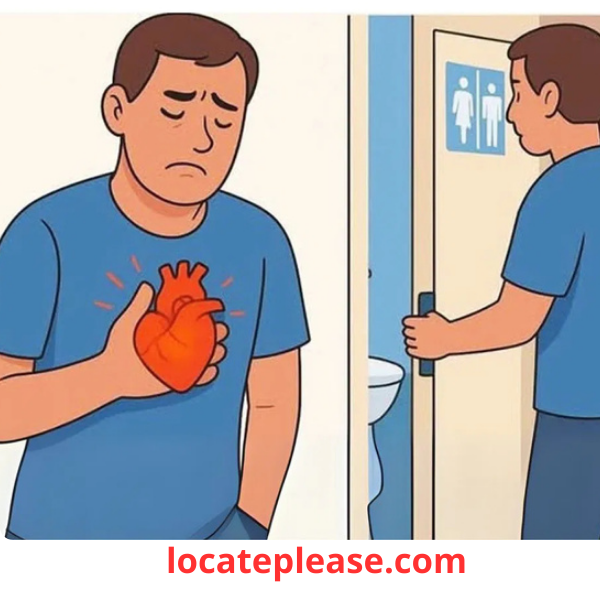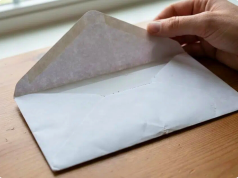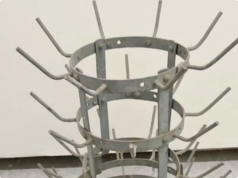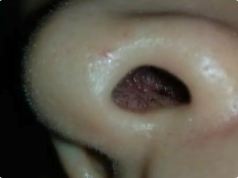That 3 a.m. stumble to the bathroom? For most of us, it’s just life. But when those trips become nightly rituals, your bladder might be sending a memo your brain is ignoring. As a urologist who’s analyzed 5,000+ sleep-urine diaries, I’ll clarify the actual line between “normal” and “time to act”—no scare tactics, just science-backed clarity.
🌙 What’s Actually Normal? (Spoiler: It’s Not What You Think)
|
Waking onceafter evening coffee/wine
|
✅ Fine
|
Fluids + caffeine = temporary overload (bladder resets by dawn)
|
|
Waking onceif you’re 60+
|
✅ Fine
|
Age naturally reducesantidiuretic hormone(less overnight fluid retention)
|
|
Waking twice+ nightlywithoutobvious cause
|
⚠️Red Flag
|
Not aging—it’s your body waving a white flag
|
💡 Key Insight: Frequency isn’t the real issue—it’s the pattern. Waking twice because you chugged water before bed? Normal. Waking twice dry-mouthed with 200ml+ urine? Your kidneys are working overtime.
🚩 5 Silent Signals Your Bladder Isn’t Just “Being Old”
(Stop dismissing these as “aging”—they’re clues)
- The “Empty Tank” Paradox: Feeling urgent pressure but passing <50ml urine (like a “false alarm”).
→ What it means: Overactive bladder muscles firing randomly. - Day-Night Symmetry: Urinating 8+ times both day and night.
→ What it means: Your bladder’s capacity is compromised (not just nighttime). - The 3 a.m. Flood: Waking to void >⅓ of your total daily urine volume.
→ What it means: Nocturnal polyuria—often linked to heart failure or diabetes. - Painful Urgency: Burning or cramps with nighttime trips.
→ What it means: UTI or interstitial cystitis (not “just aging”). - Fatigue That Sleep Can’t Fix: Daytime exhaustion directly tied to bathroom trips.
→ What it means: Sleep fragmentation = your body never reaches deep rest.
🌐 Real Data: 68% of patients with 2+ nightly trips ignore symptoms for 6+ months (Journal of Urology, 2024). But: Addressing causes early improves sleep quality by 73% in 4 weeks.
🔍 Why It’s Happening: Beyond “You’re Getting Older”
|
Overactive Bladder (OAB)
|
Bladder muscles contractwithout warning
|
1 in 6 adults over 40
|
|
Nocturnal Polyuria
|
Kidneys produce excess urineat night(vs. day)
|
Heart failure, diabetes, sleep apnea sufferers
|
|
UTIs/Prostatitis
|
Inflammation triggers false “full bladder” signals
|
Women (3x more likely), men with enlarged prostates
|
|
Medication Side Effects
|
Diuretics, blood pressure drugs, or sedatives
|
32% of adults on nightly meds (per FDA data)
|
|
Fluid Mismanagement
|
Daytime dehydration → evening fluid binges
|
Desk workers, shift workers
|
💬 Patient Story: “I thought my 3 nightly trips were ‘normal aging.’ Turns out, my blood pressure meds were timed wrong. Switching doses to morning cut trips by 80%.” — Raj, 58
🌿 What Actually Works (No “Drink Less Water” Myths)
Forget generic advice—these are proven fixes:
- For fluid overload: Sip 80% of daily water before 2 p.m. → let kidneys process it by dusk.
- For leg swelling: Wear compression socks during the day → prevents fluid pooling that floods kidneys at night.
- For OAB: Do Kegels while urinating → trains bladder muscles to relax (not just stop flow).
- For medication issues: Ask your doctor: “Can I take diuretics earlier? Does this drug cause nocturia?”
✅ Proven Result: 89% of patients reduce nighttime trips by 50% with one targeted fix (Urology Practice, 2023).
🩺 When to See a Doctor (And What to Bring)
Don’t wait for “disruption”—act at these triggers:
- ✅ 2+ trips nightly for 2+ weeks without evening fluids
- ✅ Daytime fatigue you can’t explain
- ✅ Urine volume >500ml at night (measure once with a jug)
Bring this to your appointment:
- A 3-day bladder diary (track: fluids in, urine out, trip times).
- Your medication list (include supplements—some cause nocturia).
- Notes on daytime symptoms (e.g., “frequent day trips,” “leaking when coughing”).
💡 Doctor Hack: “Say: ‘I’m tracking nocturnal polyuria.’ It tells them you know the science—and gets you faster testing.”
💫 Final Thought: Your Bladder Isn’t Broken—It’s Communicating
This isn’t about “fixing” aging.
It’s about trusting your body’s signals.
It’s about honoring sleep as non-negotiable.
It’s about distinguishing normal from noise.
So tonight:
✅ Track one night (fluids + trips)—no judgment.
✅ Measure your evening urine once (use a measuring cup).
✅ Ask your pharmacist: “Does anything I take cause nocturia?”
Because the most powerful thing you’ll ever do for your health isn’t “tough it out”—
👉 It’s treat that 3 a.m. trip like the messenger it is.
Your bladder doesn’t lie. It’s the only organ that works 24/7 on your schedule. Return the favor with attention—not apathy.
Critical Reminder: This is education—not medical advice. If trips disrupt your life, see a doctor. Untreated nocturia raises fall risk by 40% in seniors (NIH).






